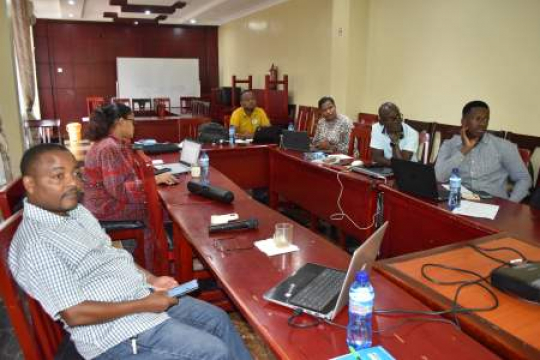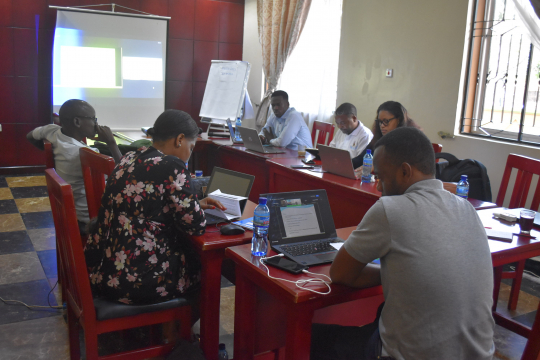EfD’s Inclusive Green Economy (IGE) program in Tanzania had an inaugural meeting in Morogoro for the newly recruited IGE fellows on May 15-16, 2024. Following this event, intensive training sessions were held. The primary objective of these sessions was to equip the fellows with the knowledge and skills necessary to drive energy efficiency and reduce emissions.
During the training, Dr. Remidius Ruhinduka, the IGE lead in Tanzania and an expert in sustainable energy transition, shared valuable insights. He highlighted remarkable spatial variations in energy consumption patterns across rural and urban areas in Tanzania. He discussed the shift from firewood to charcoal consumption and the recent adoption of LPG (liquefied petroleum gas) and electricity for cooking. His emphasis on the pivotal role of national policies in fostering clean cooking energies and energy efficiency resonated with the participants. Notable policies include the recently launched National Strategy for Clean Cooking Energies (2023-2033), the National Energy Policy (2015), and the National Forest Policy (1998).
He noted that Tanzania has made commendable progress in advancing the IGE agenda, including the introduction of fiscal incentives to encourage energy efficiency and reduce emissions. Both local and international organizations, along with the private sector, contribute to the IGE program’s success. However, challenges persist, such as the high initial costs associated with adopting clean cooking technologies and the limited uptake of grid electricity in rural areas.
Empowering Tanzania’s Civil Servants
The IGE fellows were asked about their expectations in the program. All of them expressed enthusiasm, recognizing that it aims to strengthen the country’s capacity for transformation toward an IGE. Their expectations include gaining a deeper understanding of IGE, its usefulness, and risks and opportunities for applying economic instruments in sustainable development. Ultimately, they aim to learn how to practically apply economic instruments in their daily work, contributing to the transition toward a greener economy.
Moreover, IGE fellows learned that the training fosters peer-to-peer learning, allowing civil servants to expand their networks and connect with colleagues from other countries. As the IGE program continues to empower civil servants, Tanzania moves closer to a more sustainable and inclusive future and accelerates a just transition to renewable clean energy.
The 2024-2025 Cohort of IGE Fellows in Tanzania
The IGE fellows from Tanzania 2024-25 are Ruth Chuwa (Ministry of Work and Transport), Gilbert Oforo (Ministry of Industry and Trade), Kelvin Tarimo (Rural Energy Agency – REA), Hasaan Said Mwakioja (Ministry of Finance), and Mgune Masatu Mgune (Ministry of Energy).
By Salvatory

